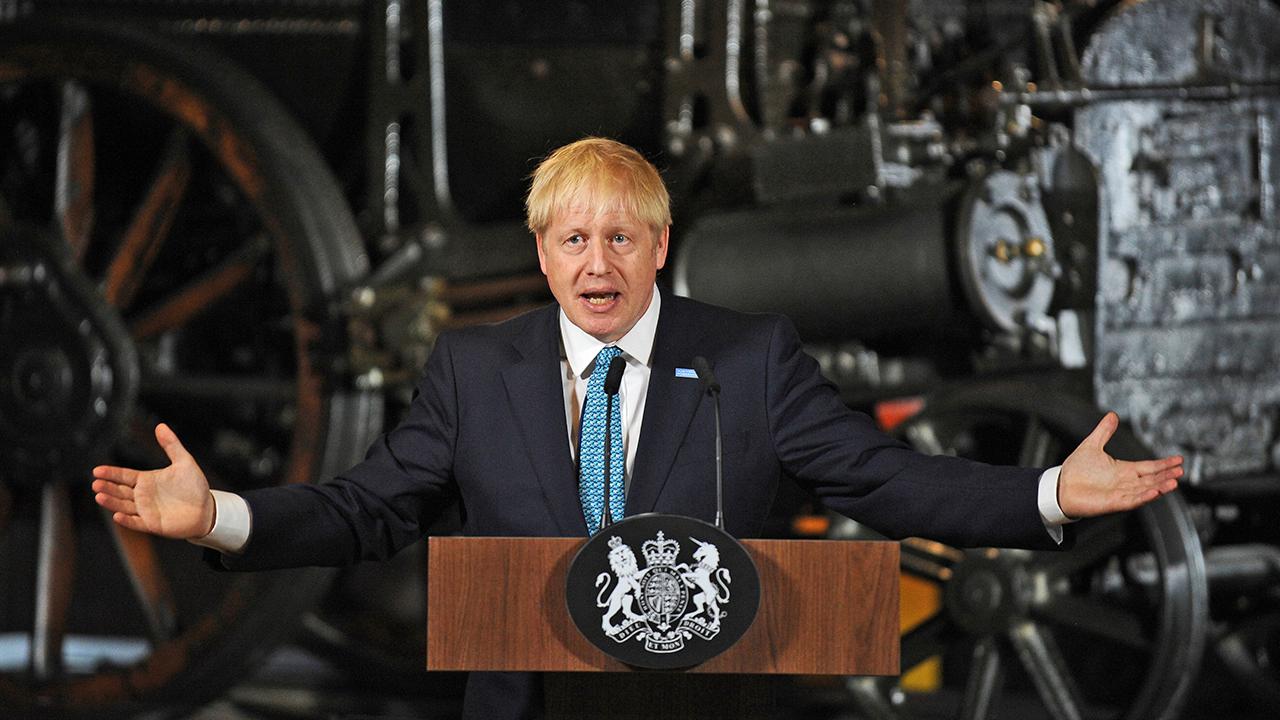Brexit chaos: All of your biggest questions, answered
In less than two months, the United Kingdom is slated to leave the European Union -- with or without a deal in place.
But on Tuesday, the politically precarious situation came to a head, when Prime Minister Boris Johnson's enemies seized control of Parliament, leaving the future of Brexit unclear.
Here are answers to some of the most commonly asked questions about Brexit.
What is Brexit really about?
In a referendum held on June 23, 2016, a 52 percent majority of United Kingdom voters decided to leave the European Union, throwing the political future of the country into turmoil. By invoking Article 50 of the Treaty on the European Union, the British government began a two-year process, which was supposed to end with its departure from the 28-member bloc in March 2019.
Lawmakers, however, have twice delayed Britain’s exit from the EU, repeatedly rejecting a deal struck between former prime minister Theresa May's government and the trading bloc. The EU eventually agreed to postpone Brexit until Oct. 31; current Prime Minister Johnson says the UK must leave the EU by the end of October -- even if there’s no deal in place that sets up the parameters of the divorce, like trade and the rights of European citizens living in the UK.
While campaigning, pro-Brexiters played up fears about a rise in immigration, promised to secure more money for the publicly funded National Health Service, restore national sovereignty, free the island nation from European oversight and spark economic growth.
What does a no-deal Brexit mean?
A no-deal Brexit means that if the UK and EU are unable to strike an agreement before the end of October, the UK will just leave without one.
Basically, within an instant, the UK would lose access to the EU’s single market and customs union arrangements, which could have serious ramifications for international commerce, the Irish border, the divorce settlement (it’s estimated the UK owes roughly 39 billion pounds to the EU), immigration and the British economy.
Without a deal, trade between the UK and the EU would fall under parameters set by the World Trade Organization -- meaning tariffs would apply to most goods sent from the UK to the European bloc.
Most economists believe a no-deal Brexit -- also referred to as a “hard” exit -- would result in economic calamity.
Right now, the UK has less than two months to negotiate a deal with the EU before the scheduled Oct. 31 departure. And last week, Johnson said he would suspend Parliament for five weeks, starting as early as Sept. 9, giving opposition lawmakers far less time to come up with a plan to avoid a no-deal Brexit.
On Tuesday, though, opposition lawmakers managed to take control of the government -- dealing a major blow to Johnson and allowing them to introduce a bill on Wednesday forcing him to seek a delay on Brexit until at least Jan. 31, according to the BBC.
It’s unclear what, exactly, happens next: Immediately afterward, Johnson told reporters he would move forward with a call for a general election in October if the legislation to block a no-deal Brexit succeeds, possibly giving him the chance to solidify his base in Parliament.
British Prime Minister Boris Johnson lost the parliamentary majority. What does that mean?
In the latest twist in the Brexit saga, the Conservative Party lost its working majority while Johnson was in the middle of a Parliamentary address.
In theory, losing his majority jeopardizes his ability to remain prime minister. But as Bloomberg News reported, Johnson will likely remain in power a little bit longer: There are still 20 independent members of Parliament, many of whom will likely be reluctant to oust Johnson with a no-confidence vote and risk an election that could allow the Labour Party to take control.
Who is Phillip Lee?
At the center of Tuesday’s drama was Phillip Lee. After 27 years in the Conservative Party, Lee publicly defected (in the middle of Johnson’s speech) to the Liberal Democrats, leaving the government with no majority.
In a statement, Lee said he made the decision over concerns about the referendum and Brexit.
“Sadly, the Brexit process has helped to transform this once great party into something more akin to a narrow faction, wherein an individual’s ‘conservatism’ is measured by how recklessly one wishes to leave the European Union,” he wrote. “Perhaps most disappointingly, it has increasingly become infected with the twin diseases of populism and English nationalism.”
Could Brexit affect U.S. consumers?
It depends whether the UK leaves the EU with a deal, and once the split is finalized, what type of trade agreement it strikes with the U.S.
At the beginning of June, President Trump vowed to double or triple trade with the UK.
“There’s tremendous promise in that trade deal,” Trump told reporters during his state visit to Britain.




















